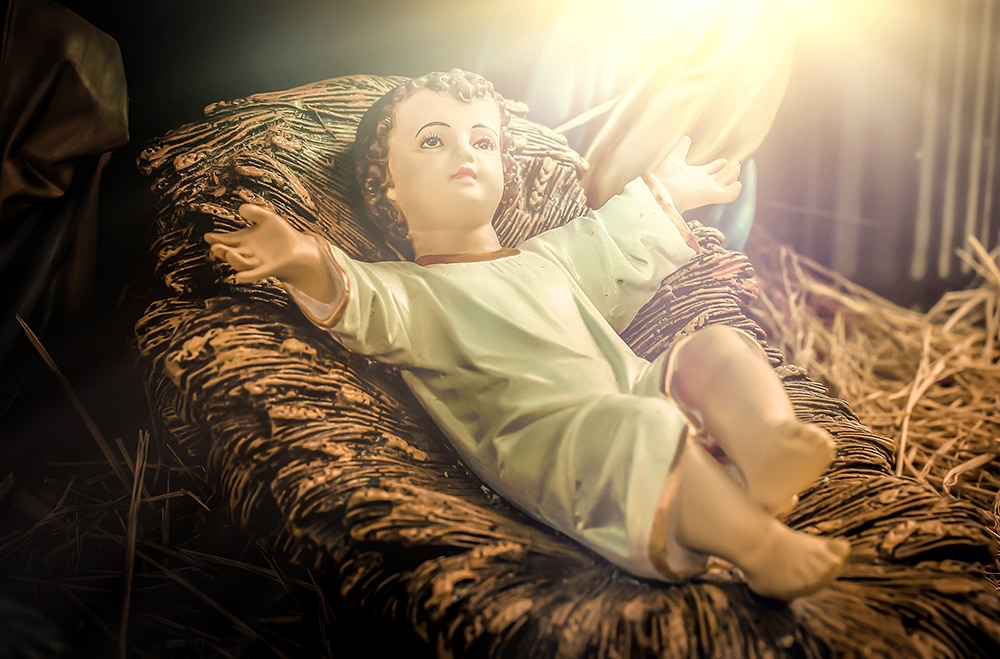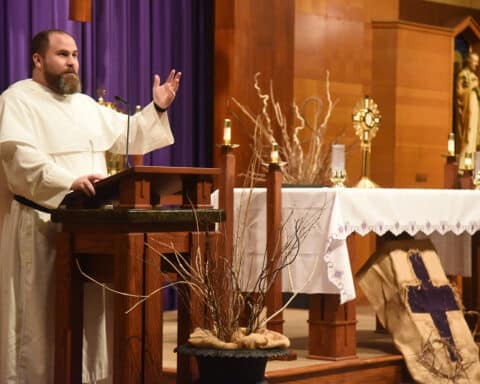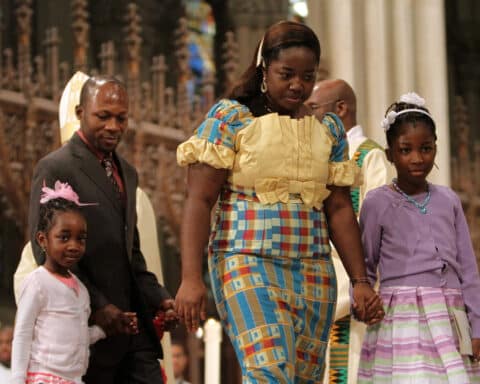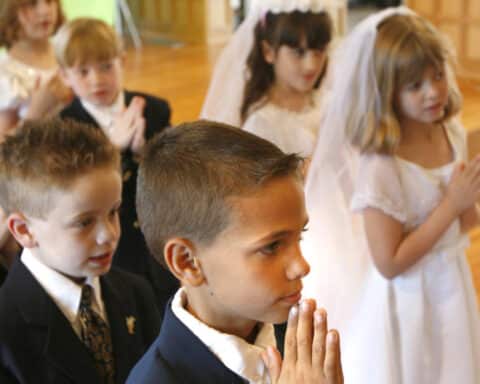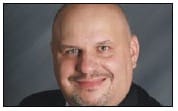
There is one simple but startling answer to all of those questions: To become gods.
No, I’m not spouting New Age nonsense. As I explain in my book, “Broken Gods: Hope, Healing, and the Seven Longings of the Human Heart” (Doubleday/Image, $21), the teaching that we are destined by God to become gods in Christ is a foundational doctrine of our faith. It is the entire reason that Christ was born at Christmas — “God became man so we might become god” as St. Athanasius said. It is the reason we need the sacraments; we can’t become gods on our own power. It is the ultimate reason we follow Christ; only he can teach us how to reclaim that divinity that was lost to us in the Fall.
Theologians refer to this teaching by various names; theosis, divinization, deification, divine filiation, but they all mean the same thing. God was born as man, suffered, died, rose again and gave us the sacraments so that we, fallen, sinful, mortal human beings, could reclaim the destiny for which we were created at the beginning of time; namely, to be perfect and eternal — gods through God’s grace.
This teaching is so central to the Church’s understanding of its very reason for being that even throughout the tumultuous first several centuries of Christianity, no one dared to question the doctrine of deification. The fact of divinization was universally promoted by all of the Church Fathers, continues to be held and taught by both the Catholic and Orthodox Churches, and was even held sacrosanct by Protestant Reformers such as John Calvin and Martin Luther.
But so what? Who cares? What difference does it make? Well, in a word (or, at the risk of putting too fine a point on it, in the Word), everything.
We, oh-so-sophisticated denizens of the new millennium, like to hide from truly big ideas like divinization. They confuse us. In fact, they terrify us. We’re afraid to really believe in mysteries that are bigger than we are. We seek to manage unruly notions like theosis by neutering them, telling ourselves, “It’s all just a lovely symbol.”
We look at the manger and lose ourselves in the warm-fuzzy feelings and symbolism of it all. We receive the Eucharist and think we’re celebrating a “symbol of unity.” The greatest mysteries of the Faith are reduced to just so much hygge. Jesus Christ and pumpkin spice.
By all means, enjoy the warmth of the symbolism of the creche, but don’t let the cuddliness fool you. The manger is a fearsome weapon. When we gaze at that idyllic scene, what we are really witnessing is the very moment when Satan himself and his most beloved minions, sin and death, were checkmated by a child.
And when you receive the Eucharist, by all means enjoy the symbolism of our unity, but don’t get so caught up in your fellow-feeling that you forget that you are receiving the most powerful medicine that was ever developed. In the Eucharist, the Divine Physician is administering a treatment that is intended to burn away everything that is broken about your humanity and transform you — through the power of his infinite love contained in that tiny, host-sized package — into what you were created to be at the beginning of time — perfect and eternal, a god in God. The Eucharist is not a symbol. You are consuming raw, devastating, divine power — a prescription to be used only as directed.
Flannery O’Connor once famously said, “If the Eucharist is a symbol, then to hell with it.” I’ll go one further. If Christmas, if the Eucharist, if the sacraments, if the Church, itself and everything it encompasses, are all just symbols, then to hell with it all. I don’t need any of it. No one does. You want cozy? Buy a blanket and cuddle up with someone you care about. You don’t need anything Christ or his Church can give you just for that.
What we all need Christ and his Church for is to help us do what we, ourselves, cannot. On our best days, we might manage being something close to well-behaved, but we can’t manage perfection and eternity without God’s grace. This Christmas, let the Eucharistic Revival the bishops recently called for begin in you when you approach the altar and realize that God became flesh and blood, so that by consuming his flesh and blood, you could become his flesh and blood.
Dr. Greg Popcak is the author of many books, including Broken Gods: Hope, Healing, and the Seven Longings of the Human Heart (Doubleday/Image, 2015).

